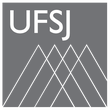Banca de DEFESA: EDILENE DA SILVA SANTOS
Uma banca de DEFESA de MESTRADO foi cadastrada pelo programa.STUDENT : EDILENE DA SILVA SANTOS
DATE: 08/08/2022
TIME: 13:30
LOCAL: Campus Centro Oeste D. Lindu - UFSJ
TITLE:
IN VITRO EVALUATION OF CANNABIDIOL ANTITUMOR POTENTIAL IN HEAD AND NECK LINEAGES
KEY WORDS:
HNSCC, CBD, cell death, cytotoxicity, selectivity.
PAGES: 59
BIG AREA: Multidisciplinar
AREA: Biotecnologia
SUMMARY:
The sixth most common type of cancer is head and neck cancer (HNSCC), representing 4% of all cancers worldwide. About 66.9% of patients with this tumour type will have an average survival of 5 years after diagnosis. Current treatments, such as chemotherapy, radiotherapy, and surgery have been limited since they promote various adverse effects, resistance to cytotoxic agents, and with that, a probable tumor recurrence. Cannabidiol (CBD) has been shown as a promising antitumor agent for various cancers, both in vitro and in vivo. However, there are only two studies in the literature that report on the action of CBD on papillomavirus (HPV-) negative Head and Neck Squamous Cell Carcinoma (HNSCC) strains; furthermore, the mechanism of action by which CBD acts on this tumor type has not been revealed. Therefore, further studies with CBD in HNSCC strains are necessary in order to unveil which possible mechanism of death it acts on and to describe the possible mechanisms of death already described in the literature in which CBD acts on cancer. Thus, the aim of this study was to evaluate, in vitro, the cytotoxic action of CBD on HNSCC strains, in addition to making a literature review on the possible mechanisms of tumor cell death caused by CBD described in the literature. Thus, the cellular cytotoxicity of CBD was evaluated using the MTT method in CCECP lines (HN13 and FaDu) and normal fibroblast (WI38) and keratinocyte (Hacat) lines. Next, the tumor selectivity of CBD was evaluated. It was observed that CBD was cytotoxic to HN13 and FaDu tumor cells, with IC50 values of 9.7 and 14.3 µM, respectively. However, in addition to being cytotoxic, CBD was selective for tumor cells, the IC50 values for normal WI38 and Hacat cells were 17.6 and 36.4 µM, respectively. The selectivity index (SI) values were (1.8 and 3.72) for HN13 and (1.15 and 2.37) for FaDu. Thus, the results showed that CBD is cytotoxic and selective for tumor cells, representing a promising antitumor candidate for CCP.
BANKING MEMBERS:
Presidente - 1680611 - ROSY IARA MACIEL DE AZAMBUJA RIBEIRO
Externa ao Programa - 1349713 - DANIELA LEITE FABRINO
Externa à Instituição - ANA GABRIELA SILVA OLIVEIRA - UNA



